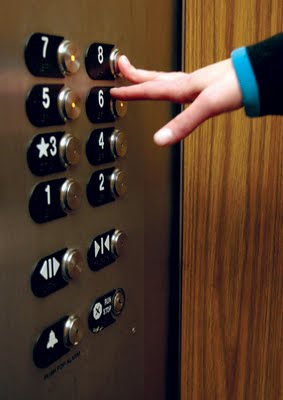Staying simple
 A few months ago, I wrote a post about my personal development as a counter-piece of anecdotal evidence to those examples suggesting poorly supported complexity and expense to achieve a body transformation.
A few months ago, I wrote a post about my personal development as a counter-piece of anecdotal evidence to those examples suggesting poorly supported complexity and expense to achieve a body transformation.
Anecdotal evidence is considered the lowest quality of evidence upon which to base decisions. It is highly susceptible to sampling bias (most people who don’t get the outcome they want don’t tend to tell their story), selection bias (I get to pick the best pictures), recall bias (most people aren’t that great at keeping research-level records of all the factors contributing to their story), as well as out-and-out dishonesty; but when it comes to individuals making decisions, it also seems to be one of the most powerful and potentially driving pieces of evidence. It is something that I think I would like to study in the future (collaborators welcome!), but as an idle musing, I think anecdotes are so powerful because they are generally quite personal, and very accessible. Anyone can read a story. There aren’t really any statistics that require courses or books to decipher. And when it comes to basing a decision on an anecdote, there aren’t any right or wrong answers. You can decide to use an anecdote because you think it fits your circumstance or not; either way, you’re right because there are so many ways in which an anecdote can fit, or not fit your situation. Read More...
Control is where you find it
 When I was my first year of residency, I did my 8-week neurosurgery rotation. I have all the respect in the world for neurosurgeons (I mean, apart from the blatant overuse of the “This isn’t brain surgery…” joke), but neurosurgery is not for me. Everyone thinks ICU is the most intense, but it’s not–at least, not for me. I remember being so tired and so busy and dealing with so many sick patients that about 3 weeks in, I started having what I’ve described to my friends as, “elevator escape fantasies” where I fantasized getting onto one of the hospital elevators and getting trapped inside, unable to answer my pager and just being able to curl into a little ball on the floor to get some sleep. That’s right. Some people’s terror-filled nightmare was my escape fantasy. I would take the elevator all of the time (except for real emergencies) on the off chance that I would get stuck. It never happened. And eventually, the rotation came to an end, and I lived to tell the tale.
When I was my first year of residency, I did my 8-week neurosurgery rotation. I have all the respect in the world for neurosurgeons (I mean, apart from the blatant overuse of the “This isn’t brain surgery…” joke), but neurosurgery is not for me. Everyone thinks ICU is the most intense, but it’s not–at least, not for me. I remember being so tired and so busy and dealing with so many sick patients that about 3 weeks in, I started having what I’ve described to my friends as, “elevator escape fantasies” where I fantasized getting onto one of the hospital elevators and getting trapped inside, unable to answer my pager and just being able to curl into a little ball on the floor to get some sleep. That’s right. Some people’s terror-filled nightmare was my escape fantasy. I would take the elevator all of the time (except for real emergencies) on the off chance that I would get stuck. It never happened. And eventually, the rotation came to an end, and I lived to tell the tale.
When I think back on those really tough weeks, there was a lot that I couldn’t control. I can tell you what I couldn’t control: I couldn’t control when to work out. I couldn’t control when to study. I couldn’t control when to go home, or when to wake up (4:30am, if you must know). I couldn’t control when to eat. On call, I wasn’t even in control of my sleep. To a certain degree, nothing has really changed since those neurosurgery days. I have a little more control, but just last week, we were up until 4:30am re-attaching a thumb. But even in that chaos, there were things that I could control: I could control WHAT I ate. I could decide to work out on days that I wasn’t on call (on the days I was DOG tired, I could decide to just walk INTO the gym and let the workout fall as it would). And I could control my decision to take the stairs or the elevator (The elevator, always the elevator, because you really can’t get stuck in a stairwell–AND people are more likely to notice an elevator not working and therefore, find you, whereas getting stuck in a stairwell most likely means something bad has happened to you…See how thoroughly my fantasies are thought out?) Read More...
